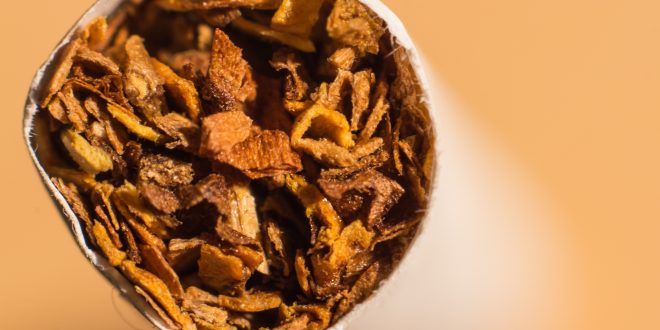Mounting evidence indicates that pain can motivate cigarette smoking behavior, smokers have reliably endorsed the use of tobacco to cope with pain, and there is reason to suspect that pain may impede smoking cessation. Smoking-related outcome expectancies are among the best predictors of cigarette consumption and relapse, and the goal of this pilot study was to develop a standardized measure of how tobacco smokers perceive their pain and smoking behavior to be interrelated (i.e. pain as a motivator of smoking, expectancies for smoking as a means of coping with pain, and pain as a barrier to quitting). Participants (N = 75) completed an online survey that was designed to assess interrelations between pain and tobacco smoking. The nine-item Pain and Smoking Inventory (PSI) demonstrated excellent internal consistency (α = .95). As expected, PSI scores were higher among smokers with chronic pain (vs. no pain), and were positively associated with established indices of both pain and tobacco smoking dependence. These results corroborate the notion that smokers can effectively communicate perceptions of interrelations between their pain and smoking behavior. Future research is needed to establish reliability and validity of the PSI among larger, more diverse samples of smokers with varying levels of pain. Future work should also examine PSI scores as predictors of smoking cessation outcomes, and whether PSI data may usefully inform the development of tailored interventions for smokers in pain.
Read the full paper: Ditre, J. W., Zale, E. L., Heckman, B. W., & Hendricks, P. S. (2017). A measure of perceived pain and tobacco smoking interrelations: pilot validation of the pain and smoking inventory. Cognitive behaviour therapy, 46(4), 339-351. http://dx.doi.org/10.1080/16506073.2016.1256347
Photo by: Erdem Durmaz
 Cognitive Behaviour Therapy A peer reviewed, multidisciplinary journal devoted to the application of behavioural and cognitive sciences to clinical psychology and psychotherapy.
Cognitive Behaviour Therapy A peer reviewed, multidisciplinary journal devoted to the application of behavioural and cognitive sciences to clinical psychology and psychotherapy.




